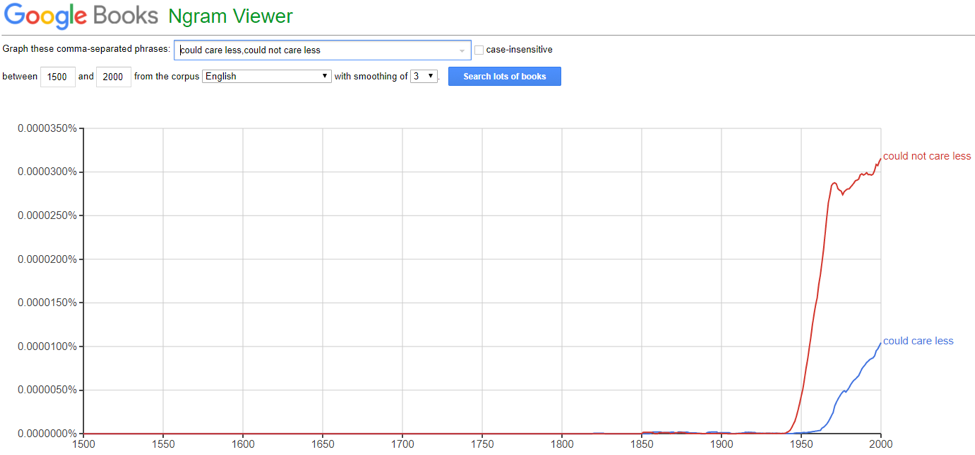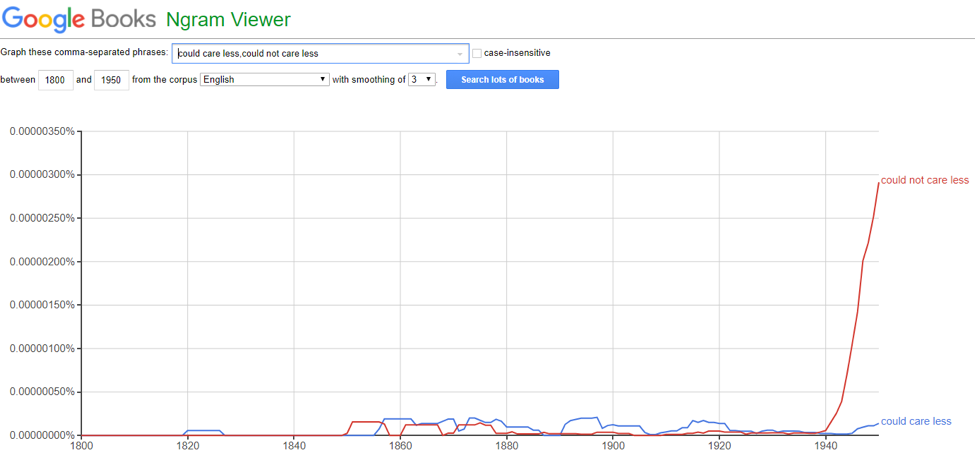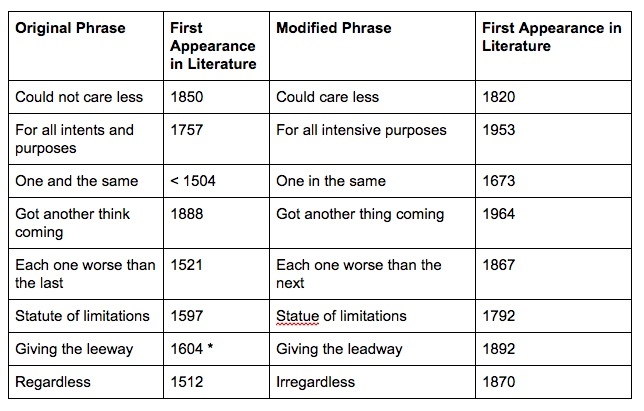Have you ever realized that you’ve been saying a common phrase incorrectly? Often the first way you hear a phrase pronounced is adopted as your personal rule. This comes up in everyday speech and, maybe most amusingly, in the misinterpretation of song lyrics. This blog post was inspired by noticing these subtle differences and by using Lifehack’s article, “25 Common Phrases that You’re Saying Wrong” and Google’s Ngram Viewer to quantify them.
Tracking changes in spoken word allows us to see the evolution of language. For some the changes are more recent than we may have previously thought. We’re able to see how spoken and written words weave together to form our evolving concept of language.
The phrase “could not care less” is to this day probably the most often confused in everyday speech. If we apply our understanding of semantics and look at these phrases’ appearances in literature from 1800 to 2000, we may conclude that “could not care less” is the original phrase. However, “could care less” was seen first in literature in 1820, and looking from 1800 to 1950, we see that there is a huge fluctuation in usage overtime.


We are limited to written works in this exploration, but Google’s Ngram Viewer is still a very useful – and fun – tool. Check out the usage of these phrases over time and explore and find other discrepancies of your own.

Columnist: Liz Hester
Data Column | Institute for Advanced Analytics
The Collaborative Blog for Students in the Master of Science in Analytics
